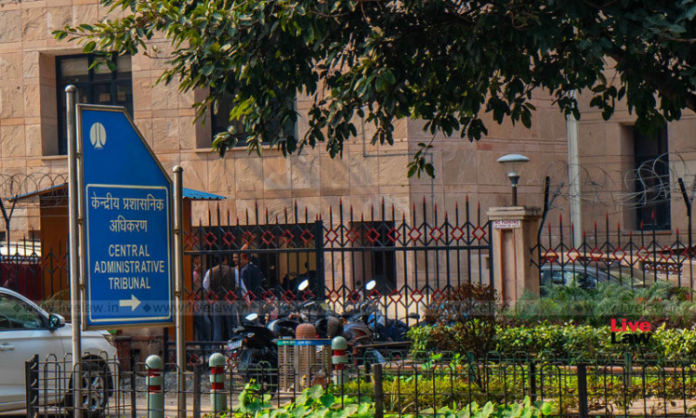The Central Administrative Tribunal (CAT) Srinagar Bench has issued severe reprimands against Government Departments for disregarding its directives. The tribunal has specifically summoned the Additional Secretary of the Home Department in the Union Territory of Jammu and Kashmir for submitting a purportedly ‘irresponsible’ affidavit, despite being well aware that the tribunal’s order had been affirmed by both the High Court and the Supreme Court of India. The Central Administrative Tribunal is a statutory body established in 1985 under Article 323-A of the Indian Constitution. This tribunal aims to resolve and settle disputes and grievances in fast-track mode related to the recruitment and conditions of service of Government employees. It is a matter of profound concern that the higher echelons of various Government departments routinely disregard the mandates issued by the CAT. Every CAT directive is the culmination of a thorough hearing involving all concerned parties, ensuring ample opportunities for the presentation of their respective cases. Once a judgement is rendered, it becomes the solemn duty of Government officials to earnestly and gracefully implement the decision. Any endeavour to circumvent or sidestep such judgements constitutes a blatant and unequivocal case of contempt. Employees from diverse departments approach the CAT with the expectation of attaining justice and CAT rulings serve as a significant source of relief for such individuals. However, even after engaging in legal battles and securing favourable judgements, these employees find themselves compelled to navigate bureaucratic hurdles to see the orders executed. This is an inexplicable and grave matter. The CAT has astutely emphasised that the law is impartial and must command respect from all quarters. Despite the court’s leniency in sparing officials from personal appearances, recognising the importance of their presence in their respective offices, the same cannot be said for the officials’ responsiveness to court orders.
This predicament is not confined to CAT orders alone; even High Court directives suffer from lackadaisical implementation. The High Court has a backlog of numerous contempt of court petitions, having previously issued notices to officials for their contumacious conduct. When viewed collectively, these issues demand serious attention and must be avoided at all costs. The judiciary, including CAT and the courts, exists to rectify any such anomaly. The submission of irresponsible affidavits to evade compliance with court orders is a grave transgression. In the past, the High Court of Jammu and Kashmir and Ladakh had also vehemently underscored the imperative for Government Departments to exhibit unwavering diligence and expeditiousness when pursuing legal remedies, categorically deeming commonplace excuses for delays as unacceptable. The Court had asserted that Government entities bear a distinctive obligation to discharge their duties with meticulousness and dedication. The Court affirmed that condoning delays should be an exception rather than a routine practice, vehemently disavowing the notion that it could be an anticipated advantage for Government departments. The High Court had also staunchly reiterated the principle that, in the eyes of the law, all entities are equal, and the application of rules and regulations should be uniform, extending equally to Government departments and individuals.
Furthermore, it raises eyebrows that all departments are equipped with legal teams to advise officials on legal matters, yet recurrent lapses continue to occur. Higher administrative officials must intervene decisively, issuing stringent guidelines to prevent such lapses in the future. CAT and court directives are instruments of justice, and any dilatory tactics or wilful disregard of judgements should incur severe penalties under the law. The CAT Bench has accorded a grace period of three weeks for the execution of previously issued directives, coupled with the stipulation of the delinquent official’s appearance beyond regular office hours. The discernible solicitude and magnanimity exhibited by the CAT Bench are commendable, underscoring the imperative for all Government officials to reciprocate with an analogous level of responsiveness by promptly effectuating court-issued mandates.
Trending Now
E-Paper


